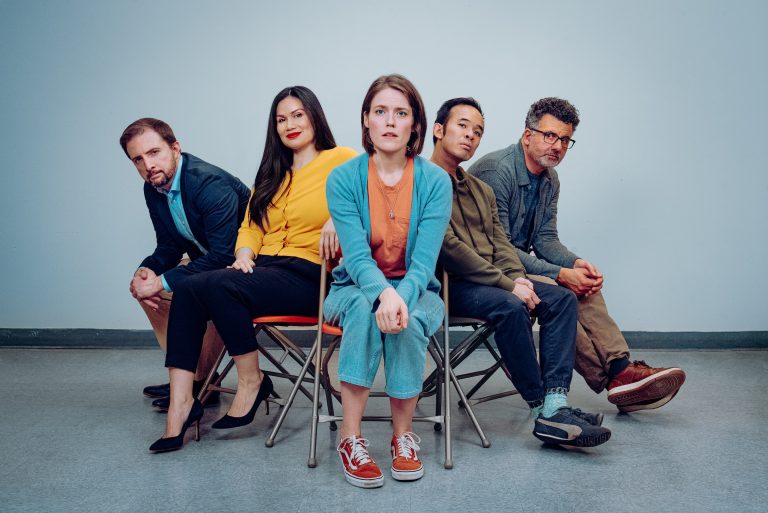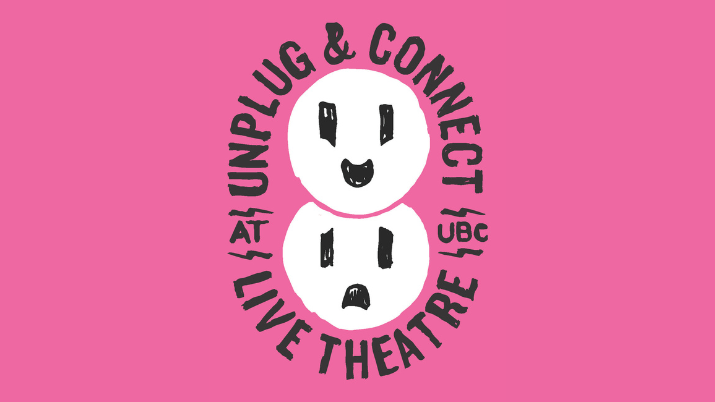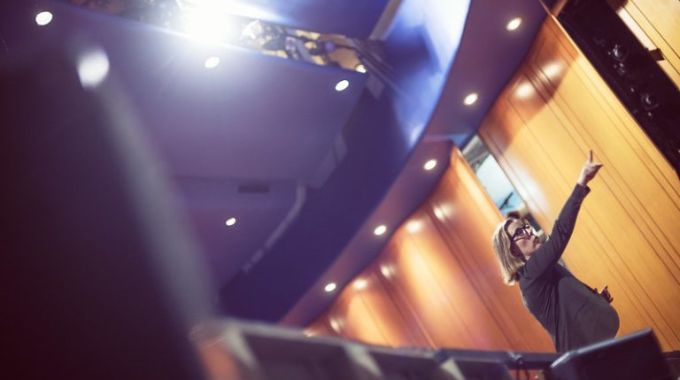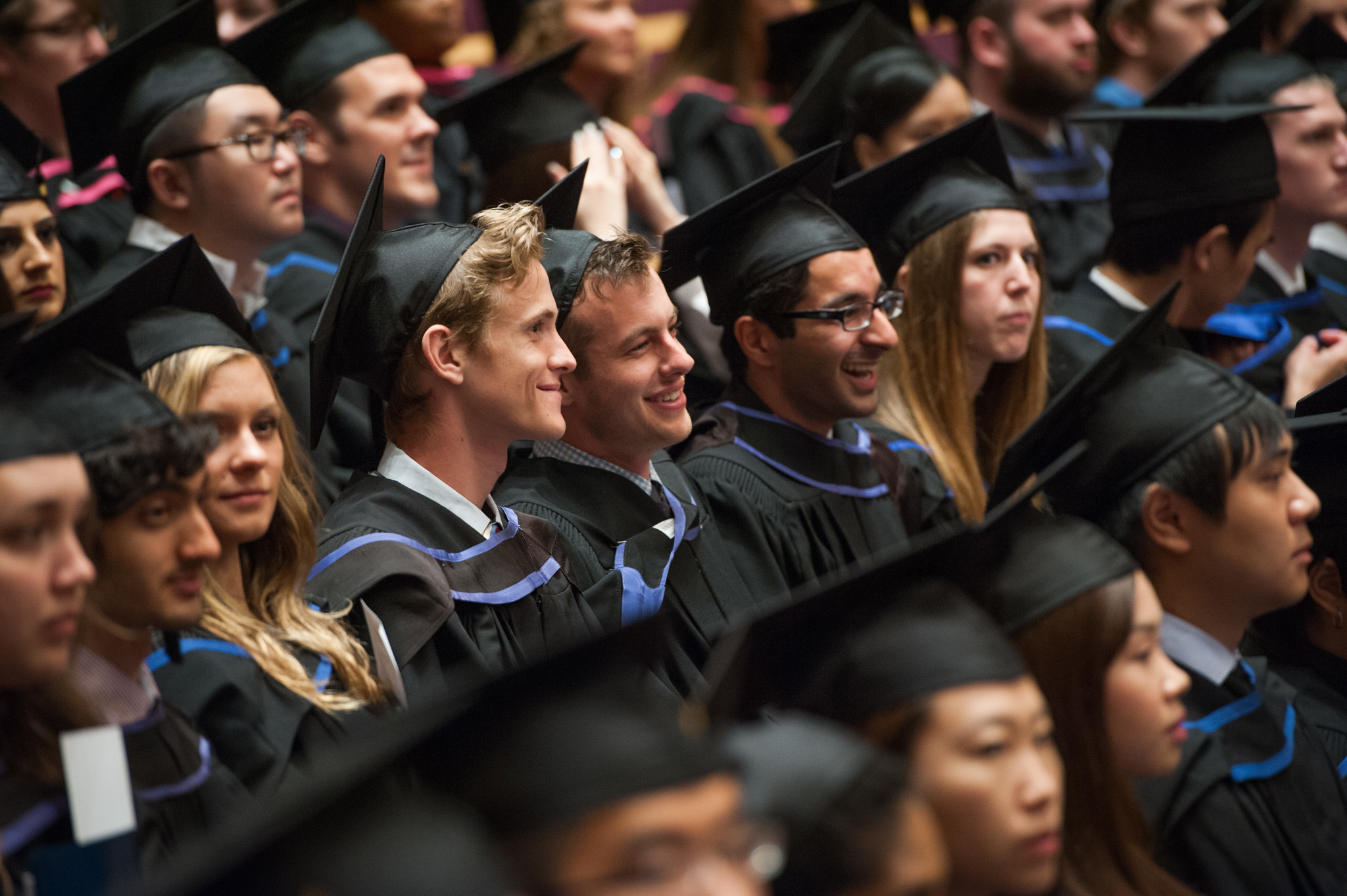

Sebastien Archibald, Carmela Sison, Kaitlin Williams, Chris Lam, and Marcus Youssef in Meeting; photo by Chelsey Stuyt
Theatre has long been a space where artists confront hard truths—about trauma, identity, injustice, and the human condition. Its power lies not just in entertainment, but in the ability to reflect and challenge the world we live in. However, while these stories can open up vital conversations, they can also leave lasting emotional impact—on both performers and audiences. A new research partnership between UBC’s Department of Theatre and Film, led by Assistant Professor Leora Morris, and Vancouver’s Pacific Theatre is exploring how to implement trauma informed practices into a theatre production for both the creative team and the audience, and subsequently, how these practices can be integrated into theatre pedagogy. With funding from UBC’s Community-University Engagement Support Fund, the team is using Meeting, a new play by Katherine Gauthier, as a case study.
Running from May 14 to June 7 at Pacific Theatre’s Chalmers Activity Room, Meeting (produced by Pacific Theatre and ITSAZOO) places audiences in an immersive support group setting, “Co-Dependents, Love and Sex Addicts Anonymous”, where five characters wrestle with themes of stigma, trauma, and trust. The production is directed by multi-award-winning artist and UBC Theatre and Film MFA Directing alum Chelsea Haberlin, with current MFA Directing student Christopher Lam performing in the role of Patrick. Meeting explores the intersection of sexuality and destructive behaviour rooted in trauma and examines the potential of restorative justice in the wake of sexual assault.


Christopher Lam
Supporting the cast through this emotionally complex material is Intimacy Director and Mental Health Coordinator Aryn Mott. As Canada’s first certified mental health coordinator working in film, television, and theatre, Mott brings a trauma-informed, consent-based approach to the rehearsal process. “Much of this work is about trust and sensitivity,” says actor Christopher Lam. “We began rehearsals by creating a room agreement, documenting our specific needs, biases, assumptions, tools, and goals. Aryn gave us practices and resources to help us engage with the material—and to disengage when we need to.” These supports are part of a broader goal: to ensure artists can work in ways that are both emotionally honest and sustainable.
Audience experience is also a key part of the project. Because the production addresses difficult topics—addiction, childhood abuse, sexual trauma—the project is testing a model of audience care. A certified Mental Health First Aid Attendant will be onsite for each performance, ready to offer support, grounding techniques, and mental health resources for anyone who finds the material overwhelming. Each show will also be followed by a “Talk Forward”, a facilitated post-show conversation featuring expert guests on topics such as trauma, sexuality, and addiction. These discussions will offer a chance for audience members to reflect, ask questions, and connect. In this way the audience is invited into a structured space to engage more deeply, rather than processing the show alone.


Larisse Campbell
MFA Directing student Larisse Campbell is documenting and analyzing the process, drawing on rehearsal observations, artist interviews, audience surveys, and insights from guest speakers and facilitators. Her findings will culminate in a report evaluating the effectiveness of the trauma-informed practices used in Meeting. “This work is fascinating and very important,” she says. “Even when the material is fictional, the body can respond as though it’s real. Theatre has always been a place to gather in community with others and reckon with the many facets of life, including the hardest parts. To do it effectively and sustainably we need to continuously seek out ways to take care of those who are putting their bodies and minds into it as well as those witnessing. There are tools and modes of working that can be used to hold up both the protection of artists involved and exploration and artistic freedom. I am keen to see this way of working become the norm—it’s about building care and longevity into the work.”
The findings from Meeting will be compiled into a final report and shared with the broader theatre community, with the aim of contributing to the growing conversation around trauma-informed practices in performance. At UBC, the insights will feed into curriculum development, particularly in the BFA Acting and MFA Directing programs. The goal is to give emerging artists the tools to approach emotionally challenging material with rigour, responsibility, and care.
Pacific Theatre Artistic Director Kaitlin Williams will join facilitated conversations with UBC students and faculty to share lessons from the project. She will also work with faculty to develop a trauma-informed toolkit tailored to actor and director training, helping students build habits that support long-term creative sustainability and care—for themselves, their collaborators, and their audiences.
Meeting runs until June 7 at Pacific Theatre’s Chalmers Activity Room. Audiences are invited to experience a thought-provoking production that not only explores trauma on stage but also reimagines what it means to take care of artists, audiences, and the stories we choose to tell. Tickets are available here.


